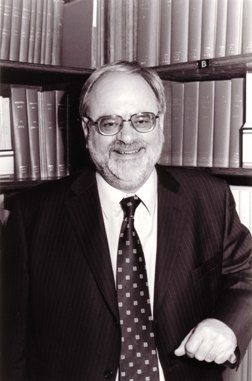from Prof. Peter Styles (Editor-in-Chief)
 The Editor has made it clear that the recent exchange of views over the identification of possible sites for disposal of radioactive waste in the UK is now closed. It is, I think, well understood that the views expressed in Soapbox articles, as with any other article in the magazine unless where explicitly stated otherwise, are those of the authors alone, and are not endorsed by the Society. However, some Fellows have expressed concern that simple factual errors may sometimes appear uncorrected in Geoscientist as a result of the editorial freedom extended to authors of Soapbox articles, and that this may be a source of confusion for Fellows and others trying to get to grips with the topic.
The Editor has made it clear that the recent exchange of views over the identification of possible sites for disposal of radioactive waste in the UK is now closed. It is, I think, well understood that the views expressed in Soapbox articles, as with any other article in the magazine unless where explicitly stated otherwise, are those of the authors alone, and are not endorsed by the Society. However, some Fellows have expressed concern that simple factual errors may sometimes appear uncorrected in Geoscientist as a result of the editorial freedom extended to authors of Soapbox articles, and that this may be a source of confusion for Fellows and others trying to get to grips with the topic.
In view of this, I would like to take this opportunity as Editor-in-Chief to make the following factual corrections to information presented in the article ‘Fallout over Radioactive Waste’, which appeared in the December 2013/January 2014 issue (Geoscientist 23.11).
The article stated that: “Reports in 1999 by the Royal Society and the House of Lords Science and Technology Committee recommended a national site search, led by geological criteria. However the 2001 Defra white paper Managing Radioactive Waste Safely ignored this advice, proposing 'voluntarism'. CoRWM, the committee set up to develop deep geological disposal for UK intermediate and high-level radwaste, which reported in 2006, contained not a single Earth scientist."
In fact the 2001 Defra White Paper was the launch of a process to decide how government policy on long-term waste management should be developed, following the failure of the previous policy approach based on geological disposal, and it was written partly in response to the 1999 reports. It did not propose geological disposal, by "voluntarism" or any other means, but it did lead to the establishment of the Committee on Radioactive Waste Management (CoRWM).
CoRWM was also not set up to develop deep geological disposal. On the contrary; given concern over lack of public confidence in the previous policy approach, its remit was to consider afresh all the possible options for long-term waste management and to "make recommendations for the long-term management of the UK's higher activity wastes that would both protect the public and the environment, and inspire public confidence". Although CoRWM was therefore not charged with a specifically geological task, the Geological Society nonetheless made strong representation concerning the omission of any geological expertise on CoRWM at that time.
The Society organised a meeting in January 2006 on ‘Geosciences and the Long Term Management of Radioactive Wastes’, which brought together global experts in Radwaste Disposal to describe their approach to disposal, which was universally for a deep geological repository, albeit within a range of geological scenarios. This meeting was influential in helping CoRWM with its deliberations. In July 2006, CoRWM recommended geological disposal as the preferred technical solution for higher level wastes, together with a principle of voluntarism and equal partnership between any potential host community and the implementing body throughout the site selection process. These recommendations were adopted as Government policy.
After further public consultation on a framework for site selection, the 2008 White Paper did indeed set out a process based on voluntarism, combined with staged technical assessments. A number of deficiencies in the 2008 process became apparent as a result of engagement with communities in West Cumbria, which had expressed an interest in hosting a geological repository. DECC entered into a new round of consultation on the siting process in 2013, to which the Society has contributed, but geological disposal and the principle of community voluntarism as the basis of policy are not in question. A new White Paper is expected later this year.
Peter Styles